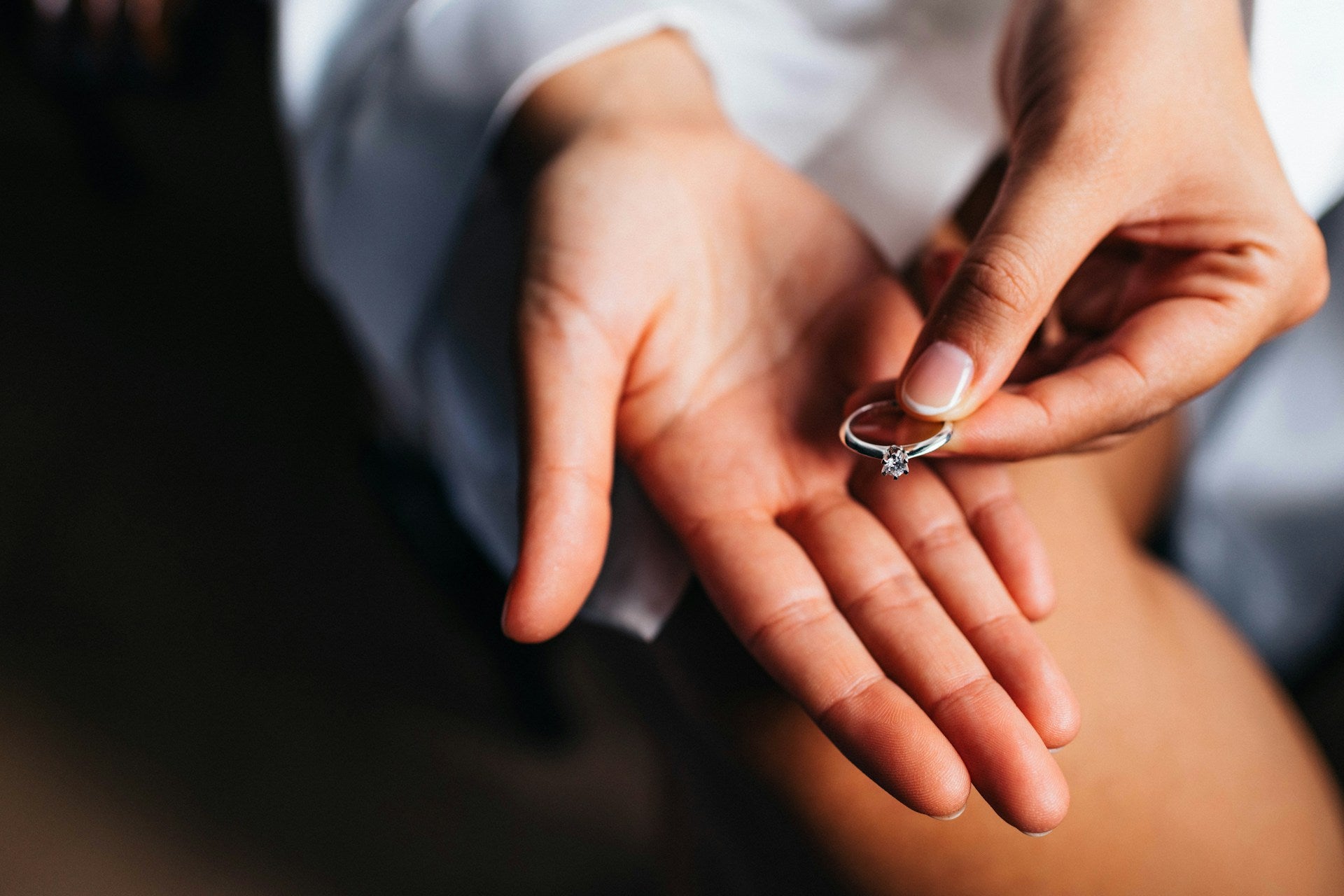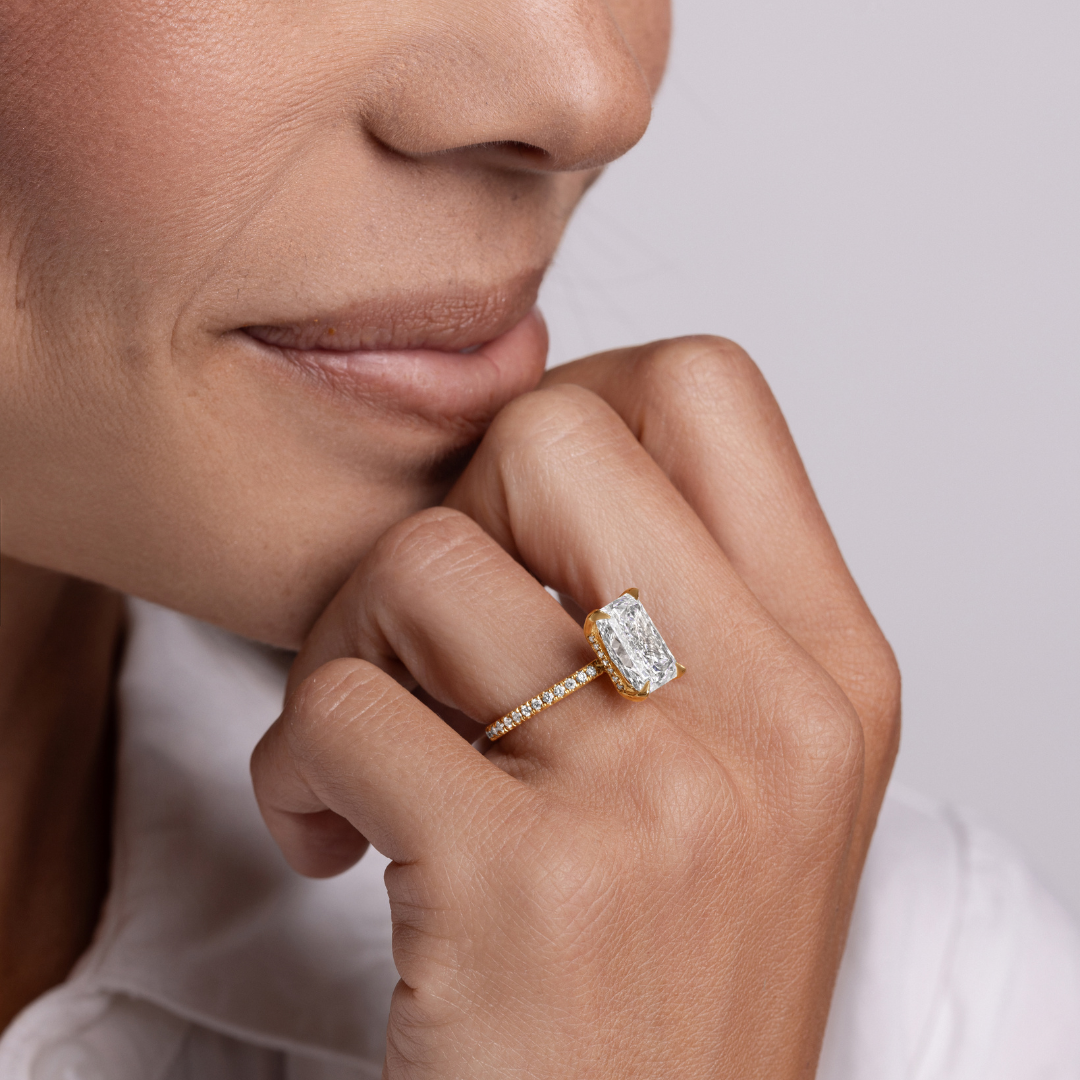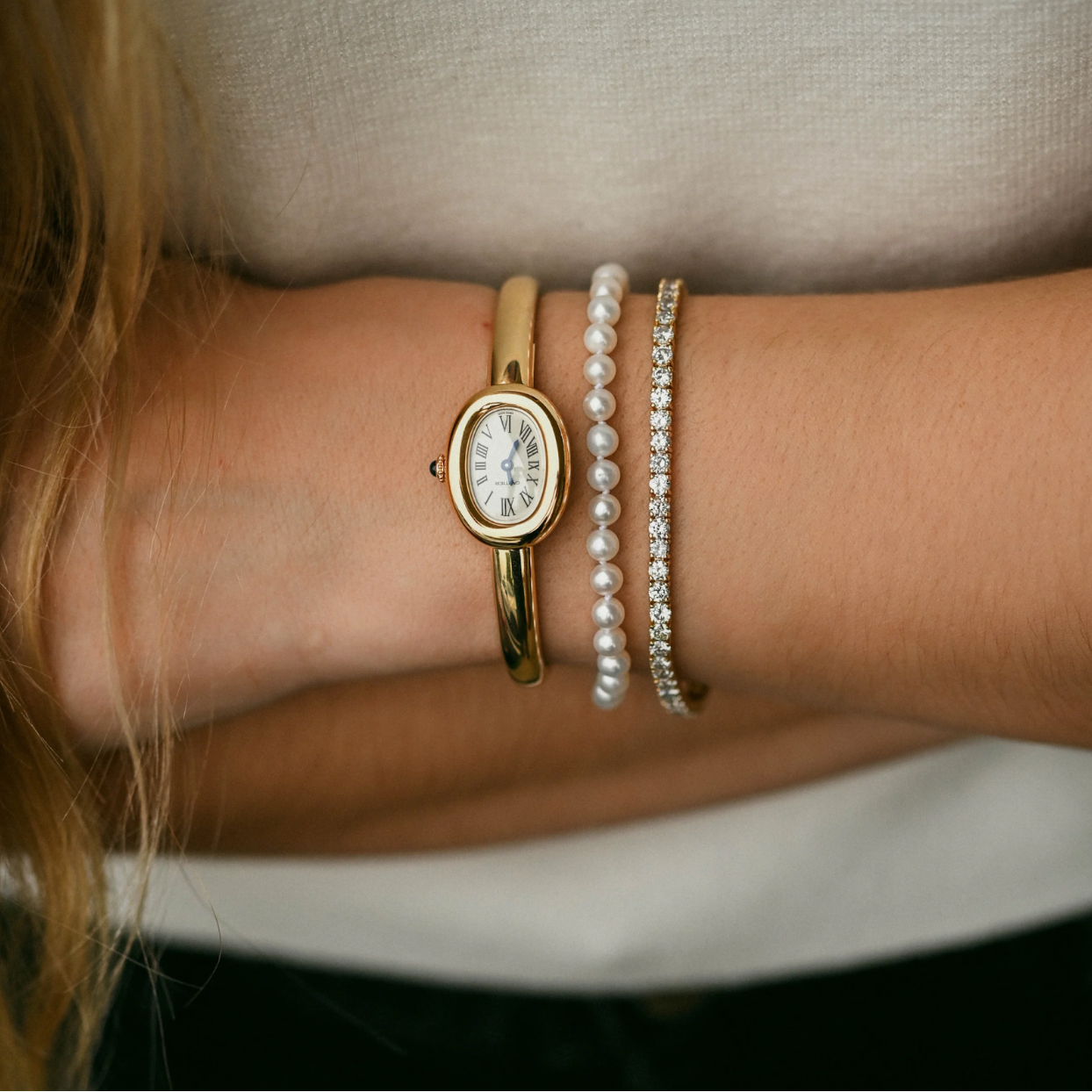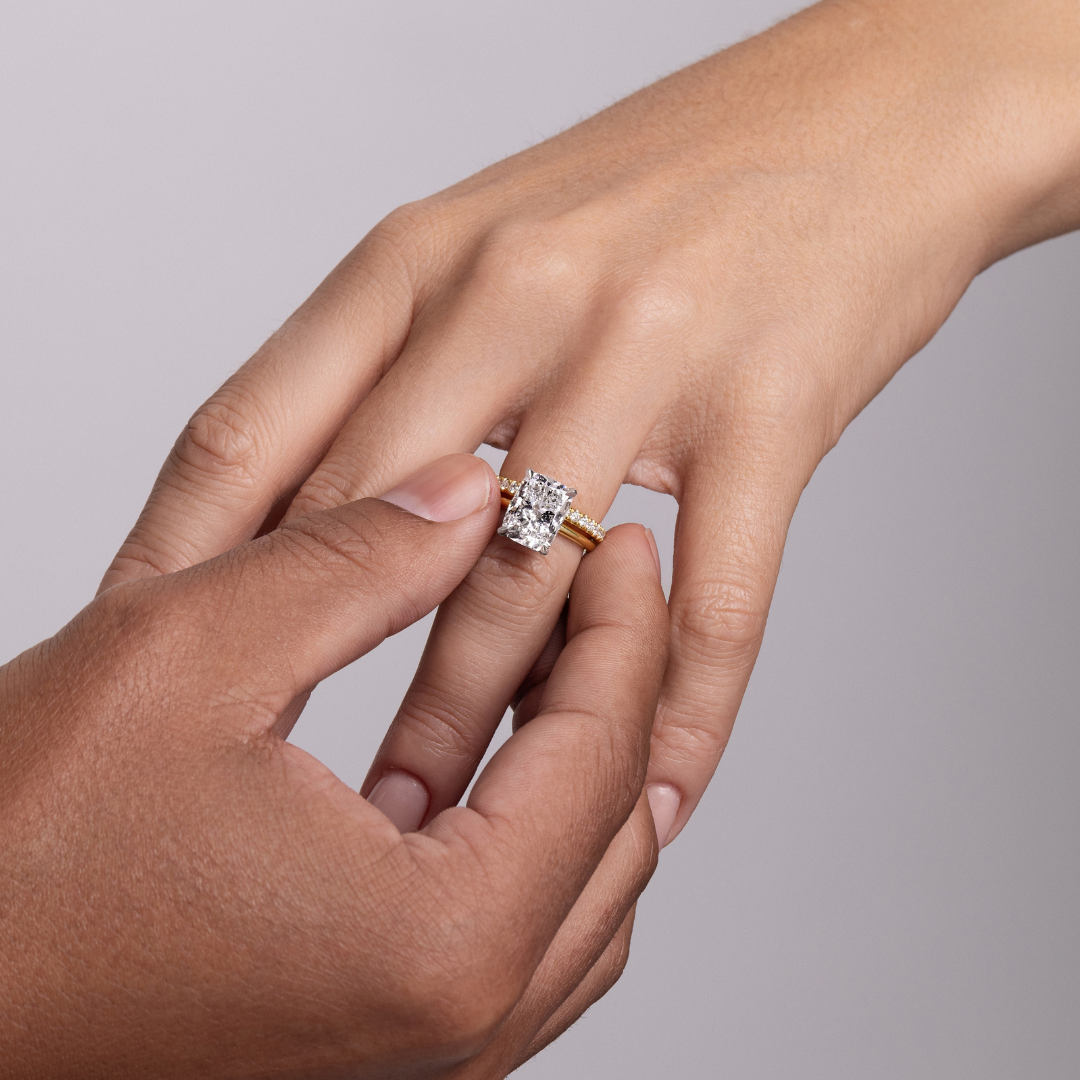Prongs are used in the majority of engagement rings—as well as many other types of rings—to hold diamonds as well as other stones in place. Theirs is truly the most important job in the ring's construction, especially when extremely valuable diamonds and other gemstones are used.
A well-designed ring will have prongs securing the diamond and gemstones snugly, and depending on the size of the diamond, at least three to six prongs will be used. Over time, the prongs will loosen, so having them tightened will become an important part of your jewelry care and maintenance routine.
What Are Ring Prongs?
Ring prongs are an important feature of the ring setting, which is how we describe the way stones are set into a ring. Think of the setting as everything but the stone(s). This is why you may hear of people shopping for an engagement ring setting if they already have a diamond, such as one passed down from a grandmother. They need a band and prongs, or in some cases, a bezel or metal encasing to hold an existing diamond in place.
The prongs are small metal pieces attached to the band and made of the same material that holds the stones in place. Hard metals such as gold or platinum are not just chosen for aesthetics: you want a strong metal to keep a valuable diamond or other gemstone secure.
Prongs can come in a few different styles. There are claw prongs, so named for their pointed shape, or bead prongs that are rounded. A V-shaped prong is sometimes used to fit a specific stone, and rings will generally have either four or six prongs.
If you are working with a diamond or other stone you already own, your jeweler will know the best way to secure the size and shape of that diamond with prongs. Always seek professional advice on this before attempting to customize a setting; the last thing you want is a setting that does not appropriately secure that family heirloom.
How Often Should You Get Your Ring Prongs Tightened?
Even the most expensive and highest-quality settings will have prongs that loosen over time. Rings are affected by both everyday wear and tear as well as by occasional mishaps that occur for those who are especially active with their hands.
The safest bet when it comes to protecting your fine jewelry is to remove it before working with your hands; however, this is not always practical, and it is also easy to forget. And rings are not just affected by yard work or other manual labor; simple, everyday tasks such as applying lotion, opening jars, or even clapping your hands could affect your rings over time.
Most jewelers recommend inspecting and tightening prongs at least twice per year or at minimum, every 9-12 months. It is a good idea to include this in visits to your jeweler to have your ring professionally cleaned. They can test and check the prongs to make sure everything is secure and tighten them as necessary.
You should never attempt to tighten the prongs or, for that matter, make any repairs on your own when it comes to your fine jewelry. Leave these tasks to the experts, who not only have the training but also the right tools to work on valuable pieces. This is one area where you should not DIY it, as you risk damaging the jewelry without the proper expertise.
Other Tips for Ring Care
While repairs should be left to the experts, it is generally okay to clean your jewelry at home as needed with some gentle dish soap and a soft toothbrush. Just be sure to put a drain stopper in before you clean any jewels near a sink!
Invest in some smart storage solutions for your jewels that will keep them stored safely when not being worn and also prevent damage. It is a good idea to save ring boxes for storage and try to keep them in one place, out of reach of little hands or four-legged family members. A ring left on a windowsill, a side table, or near a sink is a recipe for disaster!
Remember that extreme temperatures can affect the fit of your rings. In extremely cold temperatures, you may find a ring slipping right off of your finger or in hot ones, they may become difficult to remove. Consider storing your rings safely during cold-weather travel for this reason.
Ask your homeowner or renters insurance provider about jewelry coverage that may be included in your policy, or consider purchasing a separate policy for high-value rings and other pieces.
At Happy Jewelers, we have an expert team that is passionate about helping customers find the rings of their dreams, whether that means purchasing from our existing stock of exquisite jewels or having a custom design brought to life.
Contact us today to learn more about the rings we offer, as well as our tips for maintaining and caring for them. We stand behind all of our rings with a lifetime guarantee and are committed to customer satisfaction long after the sale.






Share:
Are Bracelets Better Loose or Tight?
Engagement Ring Care: Tips From Happy Jewelers